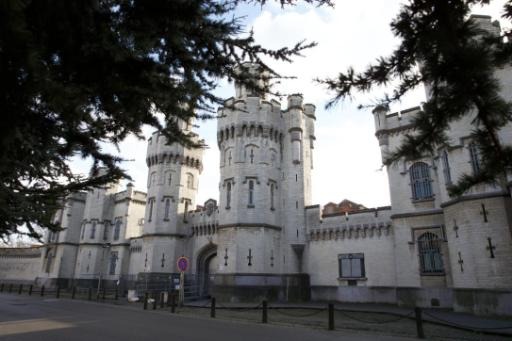The state security service has been monitoring the process of radicalization in Belgian prisons for almost two years. An agreement with the prison authority on monitoring was signed already in 2006.
This was disclosed in a report by the so-called Committee R that supervises the intelligence services in Belgium. The report was provided to the Parliament according to the newspapers L´Echo and De Tijd on Saturday (2 April).
However, the agreement was not applied initially since the phenomenon of radicalization was considered as “rather limited”.
The Committee R questioned the conclusion of the state security service. According to the committee the conclusion was based on foreign studies and not an assessment of the situation on the ground in Belgian prisons.
In 2011 the state security service realized that the problems of terrorism and radicalization should be given priority. In August 2014 the state security service introduced a card system containing the names of those prisoners who were on the terrorist list of the prison administration. 60 names were included.
170 members of the state security service have now access to the database of the prison administration. A special unit on “radicalization in prisons” was put into place last year.
Although the State Security and the prison administration are currently satisfied with their collaboration, the Committee R is of the opinion that their memorandum of understanding from 2006 is obsolete and should be reviewed.
| Rethinking about radicalization “Radicalization” is currently the main theory for explaining the growth of home-grown terrorism where terror attacks are carried out by European citizens and not by foreign jihadists. It has been described as a four-stage process: pre-radicalization, self-identification, indoctrination, and jihadization. However, in an article in International New York Times (31 March), author Kenan Malik questions the concept that he describes a counterproductive and a simplification of reality. “Counter-radicalization policies fail because they look for signs of radicalization that are in reality meaningless.” These policies also risk of creating more illiberal societies. According to his sources, jihadist terrorists were not very religious: they only became religious once they joined the jihad. Similar conclusions can be found in a recent study by Rik Coolsaet, professor in international relations at Ghent University. The study - “Facing the Fourth Foreign Fighters Wave: What drives Europeans to Syria and to the Islamic State? Insights from the Belgian case”- was published in March 2016 before the terror attacks in Brussels. “Religion is not the essence,” writes Professor Coolsaet. He sees mainly socio-economic and personal reasons for the drive to the Islamic State. “Radicalization” is not an inevitable process. The Belgians who are joining the Islamic State are mainly criminal gang members and some individuals who have lost faith in the future in Belgium and are looking for adventures. To address the problem tailor-made approaches are necessary. |
t (Source: Belga)

